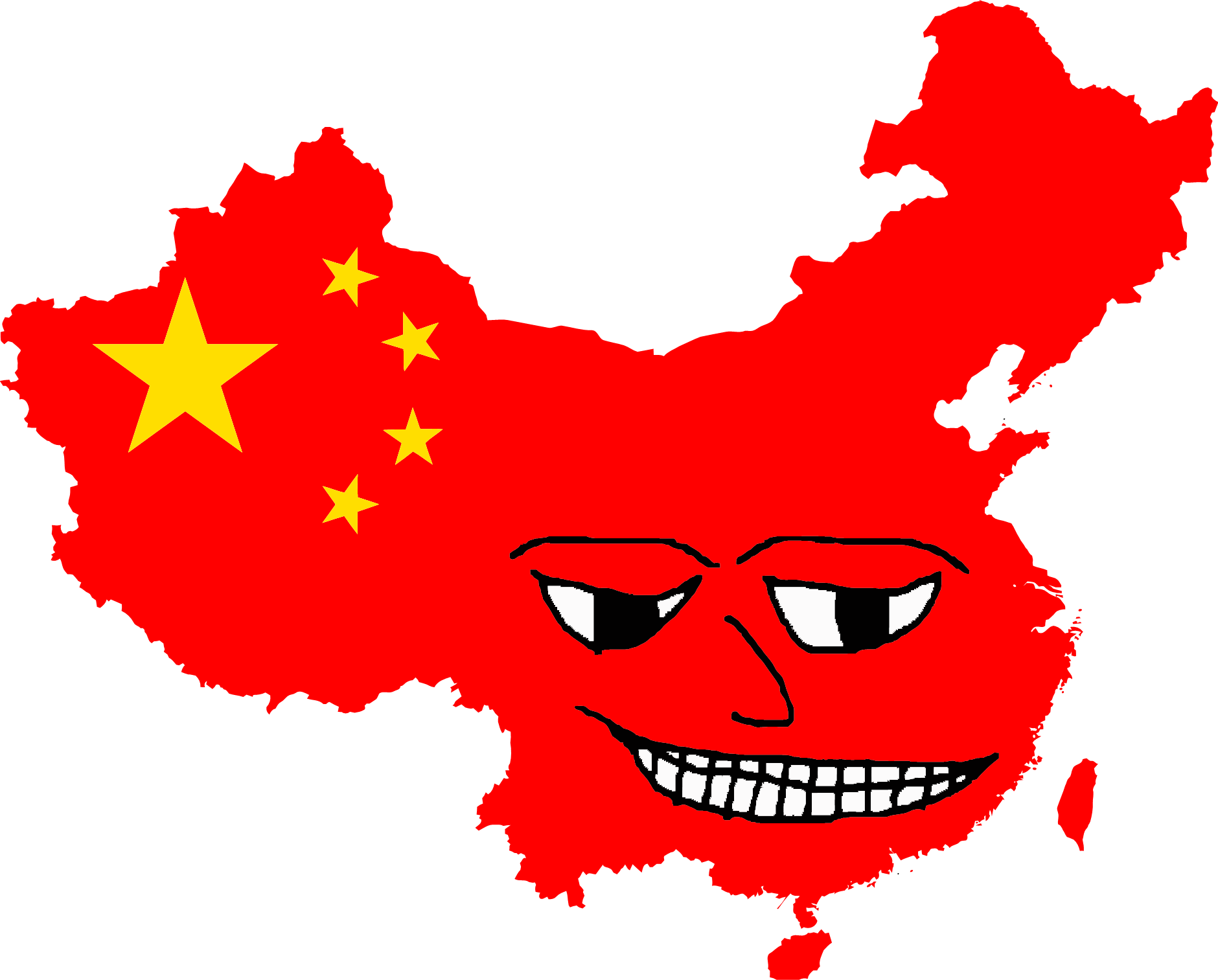I think the anti-corruption drive is one of Xi's greatest achievements, easily on par with developing the economy. Even in the 2000s, government corruption was so widespread and blatant that it was basically done shamelessly in public.
I'm no PRC expert but it has to be high up there. Not only for efficiency/efficacy reasons, not only for better reputation, not only better at making things safer, but also because the corruption was extremely useful for CIA operations (according to a Foreign Policy report and all the ones citing it).
Extract from the article (Firefox's Reader View shows the whole article):
click to expand
In 2010, a new decade was dawning, and Chinese officials were furious. The CIA, they had discovered, had systematically penetrated their government over the course of years, with U.S. assets embedded in the military, the CCP, the intelligence apparatus, and elsewhere. The anger radiated upward to “the highest levels of the Chinese government,” recalled a former senior counterintelligence executive.
Exploiting a flaw in the online system CIA operatives used to secretly communicate with their agents—a flaw first identified in Iran, which Tehran likely shared with Beijing—from 2010 to roughly 2012, Chinese intelligence officials ruthlessly uprooted the CIA’s human source network in China, imprisoning and killing dozens of people.
Within the CIA, China’s seething, retaliatory response wasn’t entirely surprising, said a former senior agency official. “We often had [a] conversation internally, on how U.S. policymakers would react to the degree of penetration CIA had of China”—that is, how angry U.S. officials would have been if they discovered, as the Chinese did, that a global adversary had so thoroughly infiltrated their ranks.
The anger in Beijing wasn’t just because of the penetration by the CIA but because of what it exposed about the degree of corruption in China. When the CIA recruits an asset, the further this asset rises within a county’s power structure, the better. During the Cold War it had been hard to guarantee the rise of the CIA’s Soviet agents; the very factors that made them vulnerable to recruitment—greed, ideology, blackmailable habits, and ego—often impeded their career prospects. And there was only so much that money could buy in the Soviet Union, especially with no sign of where it had come from.
But in the newly rich China of the 2000s, dirty money was flowing freely. The average income remained under 2,000 yuan a month (approximately $240 at contemporary exchange rates), but officials’ informal earnings vastly exceeded their formal salaries. An official who wasn’t participating in corruption was deemed a fool or a risk by his colleagues. Cash could buy anything, including careers, and the CIA had plenty of it.
At the time, CIA assets were often handsomely compensated. “In the 2000s, if you were a chief of station”—that is, the top spy in a foreign diplomatic facility—“for certain hard target services, you could make a million a year for working for us,” said a former agency official. (“Hard target services” generally refers to Chinese, Russia, Iranian, and North Korean intelligence agencies.)
Over the course of their investigation into the CIA’s China-based agent network, Chinese officials learned that the agency was secretly paying the “promotion fees” —in other words, the bribes—regularly required to rise up within the Chinese bureaucracy, according to four current and former officials. It was how the CIA got “disaffected people up in the ranks. But this was not done once, and wasn’t done just in the [Chinese military],” recalled a current Capitol Hill staffer. “Paying their bribes was an example of long-term thinking that was extraordinary for us,” said a former senior counterintelligence official. “Recruiting foreign military officers is nearly impossible. It was a way to exploit the corruption to our advantage.” At the time, “promotion fees” sometimes ran into the millions of dollars, according to a former senior CIA official: “It was quite amazing the level of corruption that was going on.” The compensation sometimes included paying tuition and board for children studying at expensive foreign universities, according to another CIA officer.
Chinese officials took notice. “They were forced to see their problems, and our mistakes helped them see what their problems were,” recalled a former CIA executive. “We helped bring to fruition what they theoretically were scared of,” said the Capitol Hill staffer. “We scared the shit out of them.” Corruption was increasingly seen as the chief threat to the regime at home; as then-Party Secretary Hu Jintao told the Party Congress in 2012, “If we fail to handle this issue well, it could … even cause the collapse of the party and the fall of the state,” he said. Even in China’s heavily controlled media environment, corruption scandals were breaking daily, tainting the image of the CCP among the Chinese people. Party corruption was becoming a public problem, acknowledged by the CCP leadership itself.
But privately, U.S. officials believe, Chinese leaders also feared the degree to which corruption had allowed the CIA to penetrate its inner circles. The CIA’s incredible recruiting successes “showed the institutional rot of the party,” said the former senior CIA official. “They ought to [have been] upset.” The leadership realized that unchecked corruption wasn’t just an existential threat for the party at home; it was also a major counterintelligence threat, providing a window for enemy intelligence services like the CIA to crawl through.
This was a global problem for the CCP. Corrupt officials, even if they hadn’t been recruited by the CIA while in office, also often sought refuge overseas—where they could then be tapped for information by enterprising spy services. In late 2012, party head Xi Jinping announced a new anti-corruption campaign that would lead to the prosecution of hundreds of thousands of Chinese officials. Thousands were subject to extreme coercive pressure, bordering on kidnapping, to return from living abroad. “The anti-corruption drive was about consolidating power—but also about how Americans could take advantage of [the corruption]. And that had to do with the bribe and promotion process,” said the former senior counterintelligence official.
The 2013 leaks from Edward Snowden, which revealed the NSA’s deep penetration of the telecommunications company Huawei’s China-based servers, also jarred Chinese officials, according to a former senior intelligence analyst. “Chinese officials were just beginning to learn how the internet and technology has been so thoroughly used against them, in ways they didn’t conceptualize until then,” the former analyst said. “At the intelligence level, it was driven by this fundamental [revelation] that, ‘This is what we’ve been missing: This internet system we didn’t create is being weaponized against us.’”
There were other ripple effects. By the late 2000s, U.S. intelligence officials had observed a notable professionalizing of the Ministry of State Security, China’s main civilian intelligence agency. Before Xi’s purges, petty corruption within the agency was ubiquitous, former U.S. intelligence officials say, with China’s spies sometimes funneling money from operations into their own “nest eggs”; Chinese government-affiliated hackers operating under the protection of the Ministry of State Security would also sometimes moonlight as cybercriminals, passing a cut of their work to their bosses at the intelligence agency.
Under Xi’s crackdown, these activities became increasingly untenable. But the discovery of the CIA networks in China helped supercharge this process, said current and former officials—and caused China to place a greater focus on external counterespionage work. “As they learned these things,” the Chinese realized they “needed to start defending themselves,” said the former CIA executive.
The 2013 leaks from Edward Snowden, which revealed the NSA’s deep penetration of the telecommunications company Huawei’s China-based servers
So the scare mongering about China’s telecommunications hacking American technology is just projections, as always.
The CIA revelations are extremely funny. Virtually their entire network was discovered and all their agents were arrested or executed. In addition to the website bugs, there was a supposed Chinese American mole within the CIA that passed along asset names to China. Even though the supposed mole confessed to everything, the CIA was unable to produce any tangible evidence of his guilt, but the courts still convicted him anyway. This was one of the problems that the FBI and CIA had during the Cold War: they dismissed any suspicions of moles, because our white American good boys would never betray us. Therefore it must be the minorities in the office
So the scare mongering about China’s telecommunications hacking American technology is just projections, as always.
Well, hypocritical yes but I wouldn't say empty projection. NATO countries, Russia, PRC, DPRK, Iran and everyone in-between are engaged in cyber-warfare. It would be ridiculous if any of them weren't, in fact. And this includes supply chain attacks.
I honestly don't know to what degree Huawei and TikTok etc. are or aren't utilized, could be nationalist fear-mongering over nothing or could be rightful fear over active collection. As far as politicians and news articles go, that's absolutely fear mongering, but if you look at things like PRISM and hardware bugging from those same NSA disclosures, and realize how much of a supply-chain risk China (and Taiwan) are for almost any computer electronics, I can't even blame them for worrying about the technology being utilized by Chinese hackers.
This was one of the problems that the FBI and CIA had during the Cold War: they dismissed any suspicions of moles, because our white American good boys would never betray us. Therefore it must be the minorities in the office
As we all know, capitalism raises people to be ethical good boys who won't betray their country.
This entire article reads as:
CIA:

 noooo you can't, you can't just punish capitalists, that's against the rules!
noooo you can't, you can't just punish capitalists, that's against the rules!
Siphoning people’s electricity to fuel your monkey coins. Disgusting. They need to make him run on a giant hamster wheel to re-generate the wasted energy.
If "illegal" "bitcoin mine" isn't redundant, it should be.
apparently they banned it so bitcoin mining still going on is illegal now
Electricity is subsidized in China and computer parts are cheap, before the ban mining operations were directly responsible for a series of blackouts in major cities.
Crypto bros are scum. Your imaginary gold isn't worth jeopardizing millions of people!
The US allowed some crypto company to repurpose a n abandoned power plant to mine bitcoin lol
They threw away their decent government position and ruined their life and their family for some crypto bro scheme and you're laughing? You think this is funny? 
Noooooo this is authoritarianism! We need to let him go and then the free market will punish him! The state should only incarcerate poor people!
You're going too far! We'll sentence him to not leaving his mansion for a few years, and then release him on parole after a month. That will definitely teach him a lesson!


This is good for bitcoin
He's not gonna talk.
NOOOOO THE MAGIC INTERNET MONEY IS INVISIBLE AND ANONYMOUS THIS ISNT POSSIBLE 
If I were him I simply wouldn't waste excessive amounts of electricity on useless bullshit
"Oh? You're approaching me?" "I can't get the corruption out of you without getting closer."




Yes I am pro-prison but only for crypto bros 
Lmao owned
Maybe he should have gotten into crypto in 2017

Glory to the Communist Party of China, they truly are the light that guides us to the future.
This on the day that my GFs brother has invited his whole family to dinner to celebrate making his first million in crypto. What could be, eh?
This is what I want from China in my country, not prison labour and factories exploiting corruption to pollute the environment.
Anyways, does anyone have any good resources on how to systematically fight rampant corruption, especially from Xi's perspective?
You could contact your local chinese consulate and ask for the Xi book.
chapotraphouse
Banned? DM Wmill to appeal.
No anti-nautilism posts. See: Eco-fascism Primer
Vaush posts go in the_dunk_tank
Dunk posts in general go in the_dunk_tank, not here
Don't post low-hanging fruit here after it gets removed from the_dunk_tank


